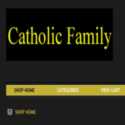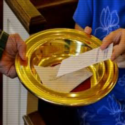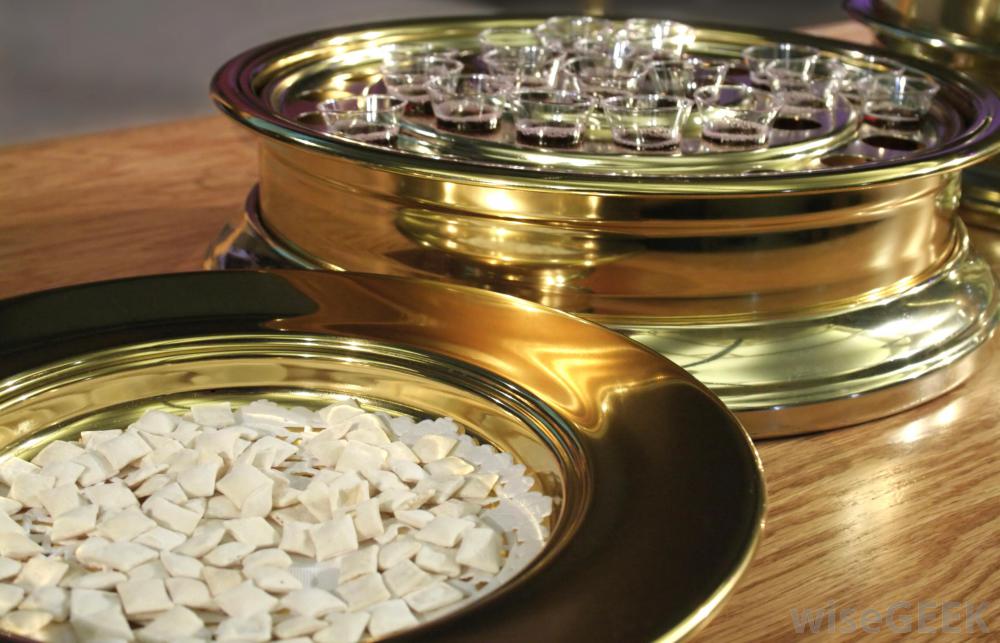Catholic Communion
Who Can Receive Communion?
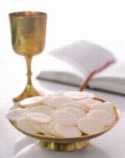
The Holy Eucharist is the most important of the seven sacraments because, in this and in no other sacrament, we receive the very body and blood, soul and divinity of Jesus Christ. Innumerable, precious graces come to us through the reception of Holy Communion.
Communion is an intimate encounter with Christ, in which we sacramentally receive Christ into our bodies, that we may be more completely assimilated into his. "The Eucharist builds the Church," as Pope John Paul II said (Redemptor Hominis 20). It deepens unity with the Church, more fully assimilating us into Christ (1 Cor. 12:13; CCC 1396).
The Eucharist also strengthens the individual because in it Jesus himself, the Word made flesh, forgives our venial sins and gives us the strength to resist mortal sin. It is also the very channel of eternal life: Jesus himself.
In John’s gospel, Jesus summarized the reasons for receiving Communion when he said:
"Truly, truly, I say to you, unless you eat the flesh of the Son of man and drink his blood, you have no life in you; he who eats my flesh and drinks my blood has eternal life, and I will raise him up at the last day. For my flesh is real food, and my blood is real drink. He who eats my flesh and drinks my blood abides in me, and I in him. As the living Father sent me, and I live because of the Father, so he who eats me will live because of me. This is the bread which came down from heaven, not such as the fathers ate and died; he who eats this bread will live forever" (John 6:53–58).
Because of the gravity of Jesus’ teaching on receiving the Eucharist, the Church encourages Catholics to receive frequent Communion, even daily Communion if possible, and mandates reception of the Eucharist at least once a year during the Easter season. Before going to Communion, however, there are several things one needs to know.
Catholics and Communion
The Church sets out specific guidelines regarding how we should prepare ourselves to receive the Lord’s body and blood in Communion. To receive Communion worthily, you must be in a state of grace, have made a good confession since your last mortal sin, believe in transubstantiation, observe the Eucharistic fast, and, finally, not be under an ecclesiastical censure such as excommunication.
First, you must be in a state of grace. "Whoever, therefore, eats the bread or drinks the cup of the Lord in an unworthy manner will be guilty of profaning the body and blood of the Lord. Let a man examine himself, and so eat of the bread and drink of the cup" (1 Cor. 11:27–28). This is an absolute requirement which can never be dispensed. To receive the Eucharist without sanctifying grace in your soul profanes the Eucharist in the most grievous manner.
A mortal sin is any sin whose matter is grave and which has been committed willfully and with knowledge of its seriousness. Grave matter includes, but is not limited to, murder, receiving or participating in an abortion, homosexual acts, having sexual intercourse outside of marriage or in an invalid marriage, and deliberately engaging in impure thoughts (Matt. 5:28–29). Scripture contains lists of mortal sins (for example, 1 Cor. 6:9–10 and Gal. 5:19–21). For further information on what constitutes a mortal sin, see the Catechism of the Catholic Church.
Out of habit and out of fear of what those around them will think if they do not receive Communion, some Catholics, in a state of mortal sin, choose to go forward and offend God rather than stay in the pew while others receive the Eucharist. The Church’s ancient teaching on this particular matter is expressed in the Didache, an early Christian document written around A.D. 70, which states: "Whosoever is holy [i.e., in a state of sanctifying grace], let him approach. Whosoever is not, let him repent" (Didache 10).
Second, you must have been to confession since your last mortal sin. The Didache witnesses to this practice of the early Church. "But first make confession of your faults, so that your sacrifice may be a pure one" (Didache 14).
The 1983 Code of Canon Law indicates that the same requirement applies today. "A person who is conscious of a grave sin is not to . . . receive the body of the Lord without prior sacramental confession unless a grave reason is present and there is no opportunity of confessing; in this case the person is to be mindful of the obligation to make an act of perfect contrition, including the intention of confessing as soon as possible" (CIC 916).
The requirement for sacramental confession can be dispensed if four conditions are fulfilled: (1) there must be a grave reason to receive Communion (for example, danger of death), (2) it must be physically or morally impossible to go to confession first, (3) the person must already be in a state of grace through perfect contrition, and (4) he must resolve to go to confession as soon as possible.
Third, you must believe in the doctrine of transubstantiation. "For anyone who eats and drinks without discerning the body eats and drinks judgment upon himself" (1 Cor. 11:29). Transubstantiation means more than the Real Presence. According to transubstantiation, the bread and wine are actually transformed into the actual body, blood, soul, and divinity of Christ, with only the appearances of bread and wine remaining. This is why, at the Last Supper, Jesus held what appeared to be bread and wine, yet said: "This is my body. . . . This is my blood" (Mark 14:22-24, cf. Luke 22:14-20). If Christ were merely present along side bread and wine, he would have said "This contains my body. . . . This contains my blood," which he did not say.
Fourth, you must observe the Eucharistic fast. Canon law states, "One who is to receive the most Holy Eucharist is to abstain from any food or drink, with the exception only of water and medicine, for at least the period of one hour before Holy Communion" (CIC 919 §1). Elderly people, those who are ill, and their caretakers are excused from the Eucharistic fast (CIC 191 §3). Priests and deacons may not dispense one obligated by the Eucharistic fast unless the bishop has expressly granted such power to them (cf. CIC 89).
Finally, one must not be under an ecclesiastical censure. Canon law mandates, "Those who are excommunicated or interdicted after the imposition or declaration of the penalty and others who obstinately persist in manifest grave sin are not to be admitted to Holy Communion" (CIC 915).
Provided they are in a state of grace and have met the above requirements, Catholics should receive the Eucharist frequently (cic 898).
Catholic Traditions
-

Pray
Please, Lord, give me the strength that I need to face today. I don't have to worry about tomorrow. If you just give me the strength that I need today that is all I need.
Prayers »
-
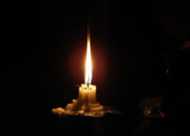
Lighting of Candles
We light the candle while praying for our intention or offering our thanks and then leave the flame burning as signs of our prayers. You might see a little coin box or basket nearby for donations to pay for the candles. If you're truly poor, don't worry about it! But if you are able, it is right to drop in a dollar or two to offset the costs.
Catholic Candle »
-
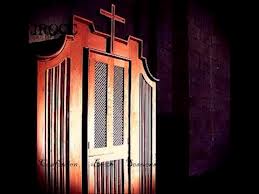
Confession
The basic requirement for a good confession is to have the intention of returning to God like the "prodigal son" and to acknowledge our sins with true sorrow before the priest.
Confession »
Support the Catholic Family Web Site
-
YourName@catholicfamily.net
Now you have a great chance to register a unique email address – and it won’t be just a commercial server like gmail.com or hotmail.com, but a domain matching your faith!
Use your name with your Catholic faith: YourName@CatholicFamily.net!
Your Faith Email Address »
-
Catholic Store
Catholic Family is a simple online Catholic store to offer simple solutions to your family life. We will be expanding the store as we evolve. Just simple items from lighting a candle to prayer requests. Enjoy the spiritual growth in you and others around you!
Shop at Store »
-
Candles
Light a Candle: A distinguishing characteristic of Catholic churches compared to other denominations is the large presence of candles. Catholics display candles for different purposes, including prayer, symbolism and memorials. Although candles are not a formal aspect of Catholicism, the tradition of lighting candles at Catholic churches is commonplace and adds beauty to the atmosphere.
Catholic Candle »
-
Donations
Catholic Family is grateful for and accepts donations from individuals as well as corporations and foundations. We also accept planned gifts, in-kind donations, and offer a variety of other giving methods.
Your support will allow CatholicFamily.net to continue supporting Catholic Families as your Virtual Church.
Donations »

